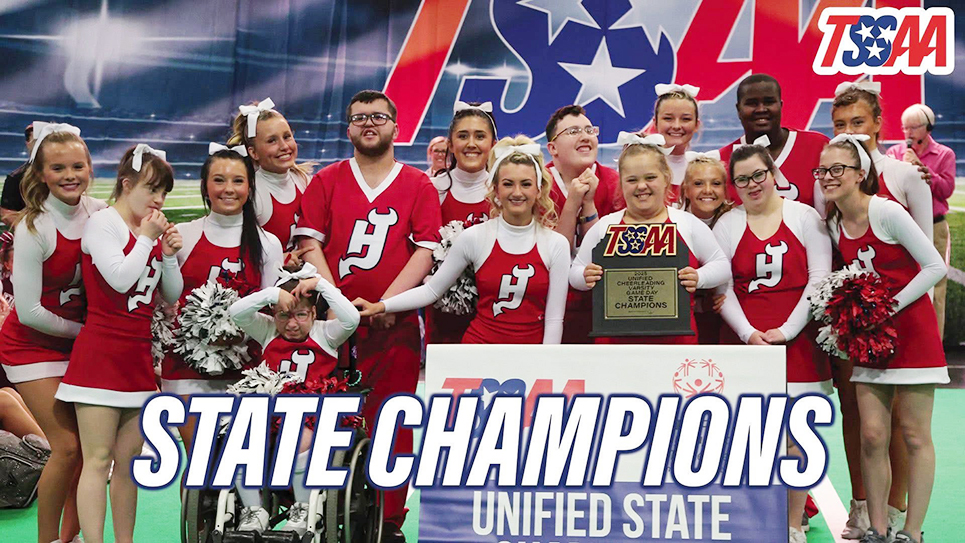A 2003 Newsletter Still Accurate Today
By John J. Duncan Jr.
Almost every week, even now, someone will say to me, “I really miss your newsletter.” I am very grateful for those comments because I tried very hard to put out very detailed Washington Reports.
Most members of Congress did not publish newsletters and the ones who did usually produced very short puff pieces filled with non-controversial things like military academy appointments.
I was told once that my newsletters had too much print in them, mainly because I very seldom ran a photo in them. However, I couldn’t resist running a photo of Dolly Parton and me after we sang the Cas Walker theme song together at a UT luncheon in 2009.
I sent out those reports two or three times a year for each of my 30 years in Congress. I wish I still had copies of each of them, but things have a way of going by the wayside, and I now have copies of just 29 of them, and only four from the 1990s.
I recently picked up my newsletter from February 2003. It was six 8” X 14” pages with 20 single-spaced reports on a very wide variety of topics.
One article listed four very specific reasons why I voted against the creation of the Department of Homeland Security, which was scheduled to open on March 1 of that year. Reason #4 on the list said the bill “incredibly included a provision relieving big drug companies from liability for vaccines that kill, injure, or sicken people.”
A New York Times columnist called the Homeland Security bill the “Supersnoop’s dream” because it would allow a database that would eventually keep track of every transaction, purchase, or call you make and every bit of information government or commercial sources have about you.
But the original 35-page proposal for the new department had turned into a 484-page monstrosity that few members had even read, and the bill passed 295-132 in the House, and 90-9 in the Senate.
This is especially interesting now in relation to the massive lobbying and public relations campaign that caused us to lead the world into a rush on the Covid vaccine.
On page 3 of my newsletter, I wrote about the “winds of war.” This was almost two months before the second Iraq War started. I wrote that “war with Iraq appears to be likely but not an absolute certainty.”
I wrote that Hussein’s total military budget was only three-tenths of one percent of ours and that its military and weaponry were less than 40% of what they were at the time of the first Gulf War.
I quoted the late Charley Reese, a conservative who once had been voted as the most-respected columnist in a vote by many thousands of C-SPAN viewers.
Reese wrote that a U.S. attack on Iraq was being “urged on by a bunch of rabid intellectuals who wouldn’t know one end of a gun from another,” and added that “Americans will be bled dry by the costs in both blood and treasure.”
I wrote then that “it is very bad policy to attack a nation – any nation – that has not attacked us, has not even threatened to attack us, and most importantly of all, is not even capable of attacking us.”
In the newsletter I also talked about H.R. 2502, a bill I introduced to allow the Smokies to keep 100% of the fees the Great Smoky Mountains National Park collected for camping and backcountry activities instead of having to send them to the national headquarters. This bill became law on Oct. 30, 1998, and was adding about $300,000 a year to the park budget.
I also reported that our office had gotten the State Department to allow the Tennessee baseball team to make a goodwill trip to Cuba. The department had first denied permission for the trip because two of Tennessee’s players had Cuban ancestors.
The 2003 newsletter also talked about my bill called the Smaller Schools Initiative. This was a bill to give school systems grants to help keep smaller schools open that had been scheduled to be closed down.
I had managed to get the bill funded at $45 million the first year, $125 million the second year, and $147 million that fiscal year.
I wrote that this bill “came from my very strong belief that extremely large schools make young people feel like numbers and cause some to resort to weird or dangerous behavior. In a smaller school, a young person has a better chance to make a team, serve on the student council, or be a leader at something and not feel so anonymous.”
I still feel that way today – 21 years later. But the Department of Education favored even more school consolidation and later convinced the Appropriations Committee to use the money for alternative learning centers.
In that newsletter, I also expressed concern that “every year millions of poor and uneducated immigrants – both legal and illegal – pour into the U.S.”
Most of the issues I wrote about in that newsletter are still big issues today, especially resentment around the world at our interventionist foreign policies.






